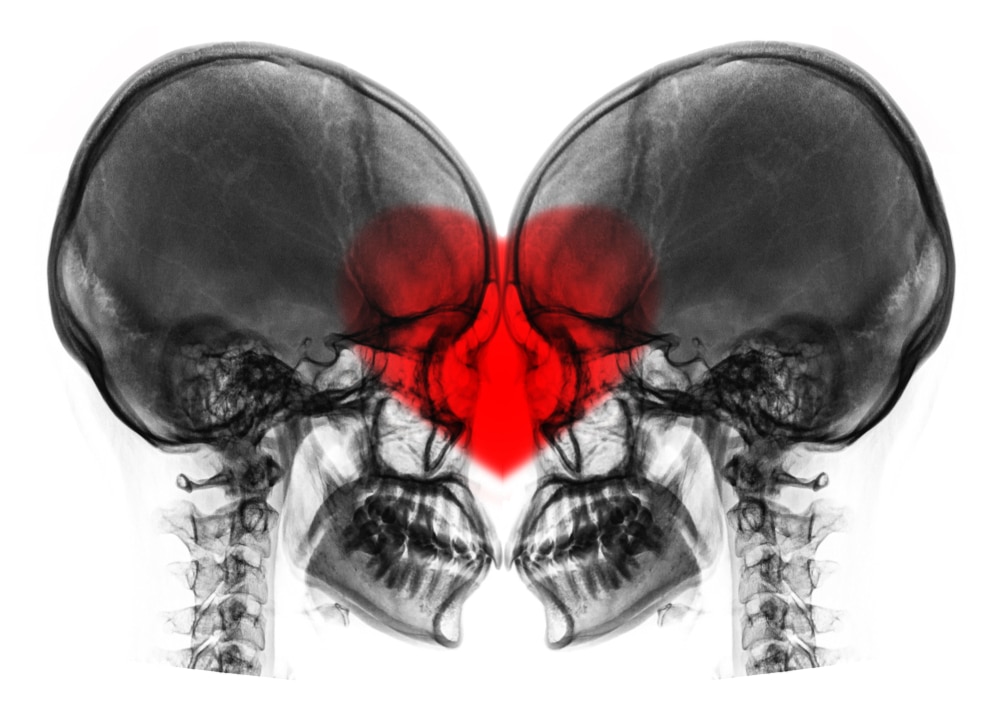Healing from an Affair with Therapy: A Guide for Couples and Individuals

Imagine standing in the middle of a hurricane, watching as everything you’ve cherished and built over time is torn to shreds in an instant. That’s what discovering an affair feels like—a violent storm ripping through the heart of your relationship. I’ve counseled hundreds of couples through the devastation of infidelity, and the same sentiment echoes,
“I didn’t see it coming.”
But, like standing in the eye of a storm, there’s a strange calm that can be found—a signal of hope. Healing from an affair is a journey, one that requires a roadmap. I’m here to help you navigate the labyrinth of emotions and guide you towards healing and, possibly, even rebuilding.
To begin with, it’s important to understand the sheer enormity of the pain caused by infidelity. It’s like a deep wound, raw and tender. The impact is monumental—it shatters trust, breeds insecurity, and can spiral into a maze of guilt, anger, and self-doubt. The lingering question always remains,
“Can we move on from this?” or “Can I heal?”
I want to assure you, healing is possible. It’s a process, yes, it’s arduous and takes time, but with the right support and professional help, you can emerge from this hurricane stronger and more resilient.
This article is a comprehensive guide that aims to shed light on the healing process after an affair. I will be introducing you to various types of therapy that can provide a lifeline during this tumultuous time. You’ll learn about the role and benefits of individual therapy, couples therapy, family therapy, and online therapy. Each type of therapy is unique in its approach and offers a different perspective on the healing process.
Moreover, we’ll delve into specific therapeutic approaches such as Cognitive Behavioral Therapy (CBT), Emotionally Focused Therapy (EFT), and Forgiveness and Reconciliation Therapy. I’ll guide you on how these techniques help navigate the aftermath of an affair, providing practical strategies to cope with and overcome the emotional turmoil.
Importantly, I’ll also share self-help strategies that can complement the therapy process. As an experienced therapist, I’ve seen that healing is not a linear process. It requires a combination of professional guidance and personal growth. I’ll introduce various self-care practices, emotional awareness techniques, and communication strategies that can play a crucial role in your healing journey.
One of the most significant challenges I have seen clients face when healing from an affair is setting realistic expectations. This is why we’ll also take a deep dive into the healing timeline and the importance of patience and resilience. Healing doesn’t happen overnight, and it’s important to remember that every individual’s journey is unique.
By sharing this guide, my aim is to help you navigate the healing process, provide you with the resources you need, and remind you that you’re not alone in this journey. Whether you’re an individual or a couple, whether you’re the one who had the affair or the one who was betrayed, I believe in your capacity for healing and growth. As you traverse this path, remember, storms can leave behind fertile ground—a place where new beginnings can root and grow.
Healing from an Affair: Understanding the Impact
One of the most earth-shattering experiences a person can go through in their romantic life is the discovery of an affair. Just imagine for a moment, the equivalent of emotional ‘ground zero‘, where all you’ve built, trusted, and believed in is thrown into question. It’s truly a seismic event. Today, we’re going to take a hard look at what happens when an affair takes place, and more importantly, the process of healing from an affair. From the emotional toll it takes on both parties involved, including the affair partner, the potential implications on trust and relationship stability, to the psychological effects such as guilt, anger, depression, anxiety, and even Post-Traumatic Stress Disorder (PTSD).
Imagine being punched in the gut. Hard. That’s the feeling one experiences upon discovering a partner’s infidelity. This gut-punch feeling is the body reacting to the shock and emotional pain of betrayal. It’s raw, visceral, and can take a significant amount of time to recover from. Yet, it’s not only the person who was cheated on that feels this way. Often, the person who had the affair also experiences intense guilt and remorse, creating a swirl of emotions that can seem almost insurmountable. It’s a crisis for both parties involved, and healing from an affair begins with recognizing and acknowledging these emotions.
Trust and Relationship Stability
If a relationship was a building, trust would be its foundation. An affair is like an earthquake that rattles that foundation to its core. In the wake of an affair, it can feel like all trust has been obliterated, leaving the relationship feeling unstable and unsure. The betrayed partner might constantly question the loyalty of the unfaithful one, causing a further rift in the relationship. In turn, the partner who committed the affair may feel under constant scrutiny and doubt their ability to rebuild the lost trust. Restoring trust is a significant part of healing from an affair, and it’s a task that requires honesty, transparency, and time.
Psychological Effects of an Affair
What’s often underestimated is the profound psychological impact an affair can have on both individuals. It’s not uncommon for the betrayed partner to experience symptoms similar to PTSD, including flashbacks, intrusive thoughts, and heightened anxiety. They might also suffer from depression as they grapple with feelings of worthlessness and betrayal.
For the person who had the affair, guilt and regret can be overwhelming. They might cycle between self-loathing and defensiveness as they try to reconcile their actions with their self-image. In some cases, they may even fall into a depression of their own, struggling with the consequences of their choices. Sometimes the person who had an affair doesn’t feel guilty at all. That does not mean that that person isn’t feeling anything – sometimes the emoptions needs to be triggered.
The psychological aftermath of an affair is real, and it’s essential to take these feelings seriously. If these symptoms persist, seeking professional help could be a crucial step in healing from an affair.
Healing from an Affair: Understanding the Impact and the Role of Therapy
There’s something about the words, “an affair,” that can send a chill down your spine. It’s like stepping on a landmine in a relationship, causing an explosion that leaves nothing untouched. From the painful realization to the turbulent aftermath, it’s like being caught in a storm without an umbrella. But, here’s the thing, no matter how drenched you get, no matter how lost you feel, there’s always a way back to healing and wholeness. That’s what we’re going to delve into today – healing from an affair, understanding the impact, and the crucial role therapy can play in this journey.
Understanding the Impact of an Affair
Imagine waking up to a world where everything you’ve known and believed seems like a lie. That’s what an affair can do. It’s a wrecking ball that can shatter the trust, respect, and love you’ve built over time. And the impact? It’s like being hit with waves of different emotions – betrayal, anger, guilt, confusion, even a deep sense of loss.
Both parties, the one who was unfaithful and the one betrayed, find themselves on a roller coaster of emotions. While the betrayed partner grapples with feelings of hurt, rejection, and anger, the one who committed the affair may struggle with overwhelming guilt and regret. It’s a turbulent period, where both parties often question everything about their relationship, including their ability to trust again and to forgive.
The Need for Therapy in Healing
So, where does one start when it comes to healing from an affair? Well, it’s here that therapy can play an invaluable role. You see, when an affair happens, it’s like a bomb going off – there’s confusion, pain, and a lot of debris to sort through. A therapist, in this context, acts like a skilled guide, helping you navigate through the chaos and start putting the pieces back together.
Therapy provides a safe and non-judgmental space where you can express your feelings, confront the issues that led to the affair, and start rebuilding trust. It allows both parties to voice their fears, their hurts, and their expectations, facilitating open and honest communication.
A good therapist can help you understand the root causes of the affair, like marital dissatisfaction, cultural views, unmet needs, or personal issues. By bringing these underlying issues to light, therapy can aid in not just dealing with the affair, but also in strengthening the relationship or aiding personal growth.
Moreover, therapy can help in managing the intense emotions that follow an affair. Through various therapeutic techniques, it can equip you with healthy coping strategies, allowing you to process your emotions without being overwhelmed by them.
Navigating the Healing Process Alone: Potential Pitfalls
It’s tempting to think that you can navigate through the process of healing from an affair alone. But, going solo on this journey can be a lot like trying to find your way through a maze without a map. The chances of hitting dead ends or going around in circles are high.
One of the major pitfalls of trying to deal with an affair without professional help is the inability to effectively communicate . Conversations can quickly turn into heated arguments, causing further hurt and misunderstanding.
Also, when trying to heal alone, there’s a risk of brushing things under the rug. You may find yourself or your partner pretending that everything’s fine, without truly addressing the issues. This can lead to resentment and prevent real healing.
Moreover, an affair can leave deep emotional wounds. Without the right help and support, these wounds can fester and lead to mental health issues like depression, anxiety, or PTSD.
Healing from an Affair: Understanding the Impact and Exploring Therapeutic Avenues
Imagine a hurricane – wild, fierce, and destructive. Now, picture it within the safe confines of a relationship. That’s what an affair can feel like. It’s a whirlwind that upends lives, causing emotional upheaval and leaving deep scars. But storms pass and healing begins. In this journey of healing from an affair, therapy can be a powerful tool. Let’s dive in, understand the impact of an affair and explore the different therapeutic avenues available.
An affair doesn’t just shatter trust; it can leave a trail of self-doubt, insecurity, anger, guilt, and grief. It shakes the very foundation of a relationship and throws both parties into a sea of emotional turmoil. The betrayed partner grapples with feelings of hurt, betrayal, and the overwhelming question – ‘Why?‘ The partner who had the affair often faces guilt, regret, and sometimes, a struggle to understand their own actions.
Individual Therapy
In the process of healing from an affair, individual therapy can be extremely beneficial. It provides a safe space for each person to express their feelings, confront their issues, and explore ways to heal and grow.
Individual therapy can help the person who had the affair understand why they did what they did. By delving into personal issues, unmet needs, or unresolved conflicts, therapy can provide valuable insights. It also equips them with strategies to manage guilt, realize one’s worth, improve self-esteem, and develop healthier relationship patterns.
For the person who was betrayed, individual therapy offers a lifeline. It helps them process their feelings of betrayal, rebuild their self-esteem, and chart a course towards healing. It also aids them in deciding whether to continue or end the relationship, and how to move forward in either case.
Couples Therapy
Couples therapy involves both partners working with a therapist to address issues, improve communication, and rebuild trust.
In couples therapy, the therapist facilitates open and honest dialogues between the partners. They guide the couple in understanding the root causes of the affair, deal with guilt, and exploring ways to strengthen the relationship.
Couples therapy can help in rebuilding trust, improving communication, and fostering empathy between partners. However, it requires commitment and willingness from both partners. The process can be challenging and sometimes uncomfortable, but it can pave the way for a stronger, more understanding relationship.
Family Therapy
An affair doesn’t just affect the couple involved; it can send shockwaves through the whole family, especially if children are involved.
An affair can disrupt family dynamics, cause distress to children, and lead to a host of issues like behavioral problems, anxiety, and trust issues.
Family therapy can be instrumental in healing from an affair. It helps address the impact of the affair on the family, aids in managing reactions, and fosters healthier family dynamics. By including family in the healing process, it ensures a more comprehensive and wholesome healing.
Online Therapy
In our digital age, online therapy has emerged as a convenient, accessible form of therapy.
With online therapy, you can attend sessions from the comfort of your home, making therapy more accessible for those with busy schedules, mobility issues, or living in remote areas.
While in-person therapy has its unique advantages like the personal touch and non-verbal cues, online therapy is not far behind. It has been found to be just as effective as traditional therapy, offering privacy, convenience, and often a wider choice of therapists.
Healing from an Affair: Approaches Used in Therapy
In the aftermath of an affair, it can feel like you’re trapped in a fog of confusion, anger, and despair. However, as the dust settles, it’s crucial to understand that healing from an affair is a process. It’s a journey that often necessitates guidance, and that’s where therapy comes in. But therapy isn’t one-size-fits-all; different therapeutic approaches can aid in healing and growth. Let’s explore some of them.
Cognitive Behavioral Therapy (CBT)
The first approach we’re going to look at is Cognitive Behavioral Therapy, commonly referred to as CBT. CBT is a type of psychotherapy that helps people identify and change thought patterns that lead to harmful behaviors or emotions. It’s like a flashlight that illuminates the link between our thoughts, feelings, and actions, helping us understand how they intertwine and influence our wellbeing.
In the context of healing from an affair, CBT can be instrumental. For the partner who had the affair, it can help unravel the thought patterns that led to infidelity. For the one who was betrayed, CBT can aid in managing feelings of betrayal, rebuilding self-esteem, and fostering resilience.
Emotionally Focused Therapy (EFT)
Next up is Emotionally Focused Therapy, or EFT for short. EFT is a short-term form of therapy that focuses on adult relationships and attachment/bonding. It acknowledges our inherent need to feel attached and secure in our relationships, and aims to create a safe and nurturing emotional environment.
When healing from an affair, EFT can be a lifeline. It encourages couples to express their emotions openly and honestly, facilitating healing and reconnection. It aids in transforming negative interaction patterns and strengthening the emotional bond between partners, fostering a more secure and trusting relationship.
Forgiveness and Reconciliation Therapy
Finally, let’s delve into Forgiveness and Reconciliation Therapy. This approach combines two essential elements of healing from an affair – forgiveness and reconciliation. It acknowledges the profound hurt caused by an affair and provides a therapeutic framework for working towards forgiveness and reconciliation.
In the journey of healing from an affair, forgiveness is often the first step towards healing, while reconciliation is the path to rebuilding the relationship. This approach can help the betrayed partner work through their feelings of betrayal and pain, and guide the partner who had the affair in expressing remorse and regaining trust. It offers strategies to resolve conflicts, rebuild trust, and foster a renewed sense of commitment and love in the relationship.
Healing from an Affair: Self-Help Strategies to Complement Therapy
Healing from an affair is akin to navigating a labyrinth. It’s a complex, winding journey filled with challenges, uncertainties, and moments of self-doubt. But with every step, you grow stronger, more resilient, and closer to finding your way out. Therapy can be a guiding light in this journey, but there are also self-help strategies that you can use to complement therapy and enhance your healing process. Let’s explore them.
If there’s one thing that can help in healing from an affair, it’s open, honest communication. Sounds simple, but it can be tough to put into practice.
Communication is the lifeblood of any relationship. It’s what keeps the relationship alive and healthy. When healing from an affair, open communication allows both parties to express their feelings, understand each other’s perspectives, and work towards healing and rebuilding trust.
Cultivating active communication involves expressing feelings and thoughts openly, actively listening to your partner, and creating a safe, non-judgmental space for dialogue. It might be uncomfortable at first, but remember, growth often happens outside our comfort zone.
Self-Care and Emotional Awareness
Healing from an affair isn’t just about mending the relationship; it’s also about taking care of yourself.
Self-care isn’t just about bubble baths and spa days (although they can definitely help!). It’s about taking care of your physical, emotional, and mental wellbeing. It’s about giving yourself permission to rest, to feel your feelings, and to do things that bring you joy and peace.
Emotional awareness involves recognizing, understanding, and accepting your emotions. It allows you to process your feelings instead of suppressing them, fostering healing and growth.
You’re not alone in your journey of healing from an affair. You have a support network – friends, family, support groups – who are there to help.
Support networks provide emotional support, offer different perspectives, and remind you that you’re not alone. They can be a source of strength and comfort during challenging times.
Developing Coping Mechanisms
Last but not least, developing healthy coping mechanisms can be instrumental in healing from an affair.
Coping mechanisms are strategies that help us deal with stress, trauma, or adversity. They can range from mindfulness and meditation to hobbies like painting or running.
Healthy coping mechanisms can help manage stress, reduce anxiety, and enhance emotional wellbeing. They can provide a sense of control in the chaotic aftermath of an affair, fostering resilience and promoting healing.
Healing from an Affair: The Path to Healing, Realistic Expectations, and Timeline
“Healing takes time.”
It’s a phrase we’ve all heard, and when it comes to healing from an affair, it rings especially true. Navigating the path to healing is a long-term journey, one that requires setting realistic expectations, patience, and persistence. So, let’s explore these facets and understand how to approach this healing journey.
When an affair comes to light, it can feel like a seismic shift, rocking the very foundations of your relationship. Healing in such a context isn’t something that happens overnight, or even in a matter of weeks or months. It’s a long-term journey.
The healing timeline varies for everyone, but experts generally agree that healing from an affair can take anywhere from one to two years, sometimes even longer. It’s a time of introspection, growth, and rebuilding, and it’s okay if it takes time.
Setting Realistic Expectations
In the aftermath of an affair, it’s natural to want things to get back to ‘normal’ as quickly as possible. But it’s crucial to understand that healing is a process, and setting realistic expectations can help make the journey less daunting.
‘Realistic‘ means understanding that healing isn’t linear – there will be good days and bad days, progress and setbacks. It means recognizing that trust, once broken, takes time to rebuild. And most importantly, it means acknowledging that the relationship might not go back to what it was before, but it can evolve into something new and stronger.
The Importance of Patience and Persistence
If healing is a journey, then patience and persistence are your travel companions.
Patience is important because, as mentioned, healing from an affair takes time. It’s about giving yourself and your partner the space to process feelings, to learn, and to grow. It’s about understanding that progress might be slow, but it’s still progress.
Persistence, on the other hand, is about the commitment to keep going, even when the road gets tough. It’s about holding onto hope, continuing with therapy, and persistently working on communication, trust, and forgiveness.
Charting the Course: Navigating the Complex Journey of Healing from an Affair
Whew! If you’ve made it this far, give yourself a pat on the back! We’ve just walked through the tough, complex, and occasionally messy topic of healing from an affair. So, why did we write this guide?
Well, we wanted to shine a light on a topic that can often feel shrouded in darkness. We wanted to provide clear, comprehensive guidance on a journey that can often feel confusing and overwhelming. Healing from an affair is no cakewalk – it’s more like attempting to salsa dance in ski boots. But hopefully, this guide has made the journey feel a little less daunting, a bit more manageable, and dare we say it, even a tad more danceable.
So why does this article matter? Because it reminds you that while the path of healing may be long and winding, it’s not uncharted. There are strategies, approaches, and therapies that can guide you. There are self-help techniques that can support you, and there’s a timeline that helps you set realistic expectations.
Ultimately, the journey to healing from an affair is not just about mending a broken relationship; it’s about growth, resilience, and building stronger, healthier connections. And that’s a journey worth embarking on. So, let’s lace up those ski boots, put on some salsa music, and take the first step together, shall we?
FAQs
What is the first step in healing from an affair?
The first step is acknowledging the pain and understanding the impact of the affair. It’s crucial to face the reality, however harsh it might be. The process also involves understanding that healing is possible and seeking professional help like therapy can be beneficial.
How long does it take to heal from an affair?
Healing from an affair can take anywhere from one to two years, sometimes even longer. It’s important to remember that healing is a process and it’s okay if it takes time.
How can therapy help in healing from an affair?
Therapy provides a safe space to express feelings, understand each other’s perspectives, and work towards healing and rebuilding trust. Different types of therapies can help, including individual therapy, couples therapy, and family therapy.
Can a relationship fully recover from an affair?
Yes, a relationship can recover from an affair, but it’s crucial to understand that the relationship might not go back to what it was before. However, with patience, communication, and therapy, it can evolve into something new and stronger.
What are some self-help strategies for healing from an affair?
Self-help strategies include active communication, self-care, emotional awareness, utilizing support networks, and developing healthy coping mechanisms.
Why is patience important in healing from an affair?
Patience is important because healing from an affair is a long-term process. It’s about giving yourself and your partner the space to process feelings, to learn, and to grow.
How can one set realistic expectations when healing from an affair?
Setting realistic expectations means understanding that healing is a process that takes time, and progress might be slow but still counts. It also involves recognizing that the relationship might not go back to what it was before, but it can evolve into something new and stronger.
My Go-To Platform for Flings, Affairs, and MILFs
Looking for top-notch flings, affairs, or MILFs? Skip the rest, AdultFriendFinder is the gold standard. Zero bots, zero fakes—just real connections. I've scored big in multiple cities. Sign up now, it's FREE!












